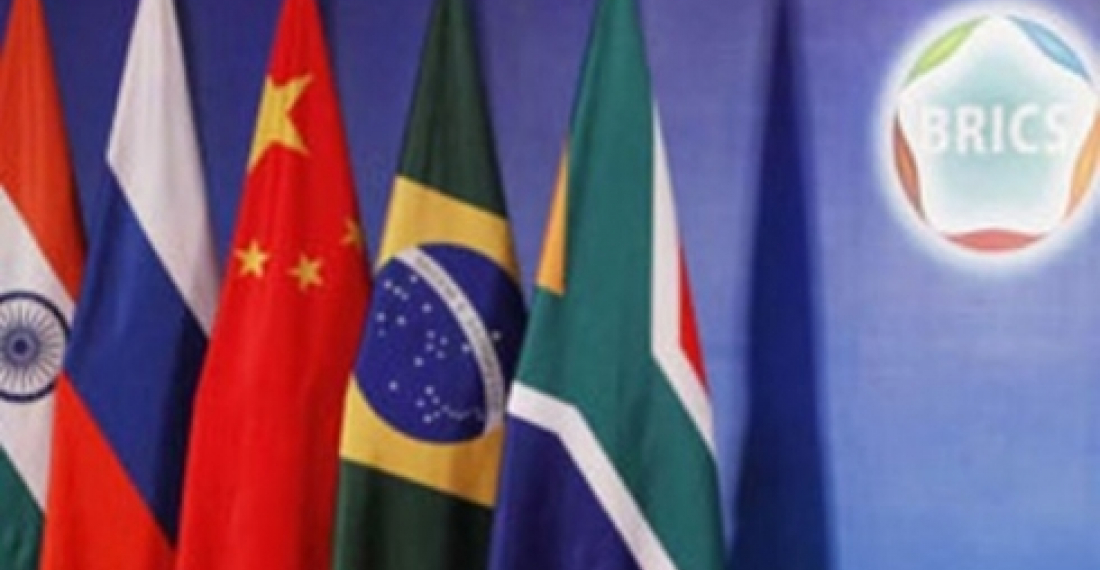Russian President Dimitri Medvedev will today outline his vision of the role of BRICS - the grouping of five countries that are playing an increasingly more important role in world affairs. The leaders of Brazil, Russia, India, China and South Africa are meeting in New Delhi today for their fourth summit.
An aide to the Russian President, Sergei Prikhodko, told Itar-Tass, "Russia expects that the forthcoming summit will make decisions that will exert a tangible positive influence on the development of the financial, economic, international and political situation, strengthen BRICS positions in the world and advance interaction in various fields".
Prikhodko said Russia's priorities at the summit are "to deepen the analysis of the state of affairs in the world economy and finances, as well as coordinate the positions of BRICS countries in the run-up to a G-20 summit in Mexico in June". He said Moscow is also interested in a "reform of the International Monetary Fund (IMF) and a discussion of the scope of and conditions for a possible participation by BRICS in replenishment of the IMF financial resources; a 'comparison of positions' on the most acute international and political issues (the situation in Syria and around it, and the situation around Iran); and energy safety problems".
Prikhodko said two sets of matters are brought up for discussion under India's presidency. The first set concerns global management problems. "The leaders are to exchange views on the state of the world economy, reforms of global mangement institutions and the problems of international stability and security," the Kremlin official pointed out. BRICS and sustainable development is the other aspect of discussions."
Commonspace.eu political editor said in a comment that Russia is increasingly relying on the support of the BRICS countries in the UN and other international fora in its efforts to counterbalance the position of the US and the EU on a number of international issues. However the situation is very different from the time of the cold war. Russia, as well as the other four BRICS countries have common interests with the US and the EU more than they have differences and therefore both sides seek a constructive engagement rather than confrontation. Issues such as the current crisis in Syria highlight the different approaches of the two groups but there are many other issues connected with global economy, as well as international security where both sides will seek to work together. The New Delhi summit will give a good indication of the position of ther BRICS countries on some of these issues in the future and a Summit Declaration is expected.
source: commonspace.eu with Itar-Tass
Photo: The flags of the five countries members of the BRICS Association (picture courtesy of Itar-Tass).







